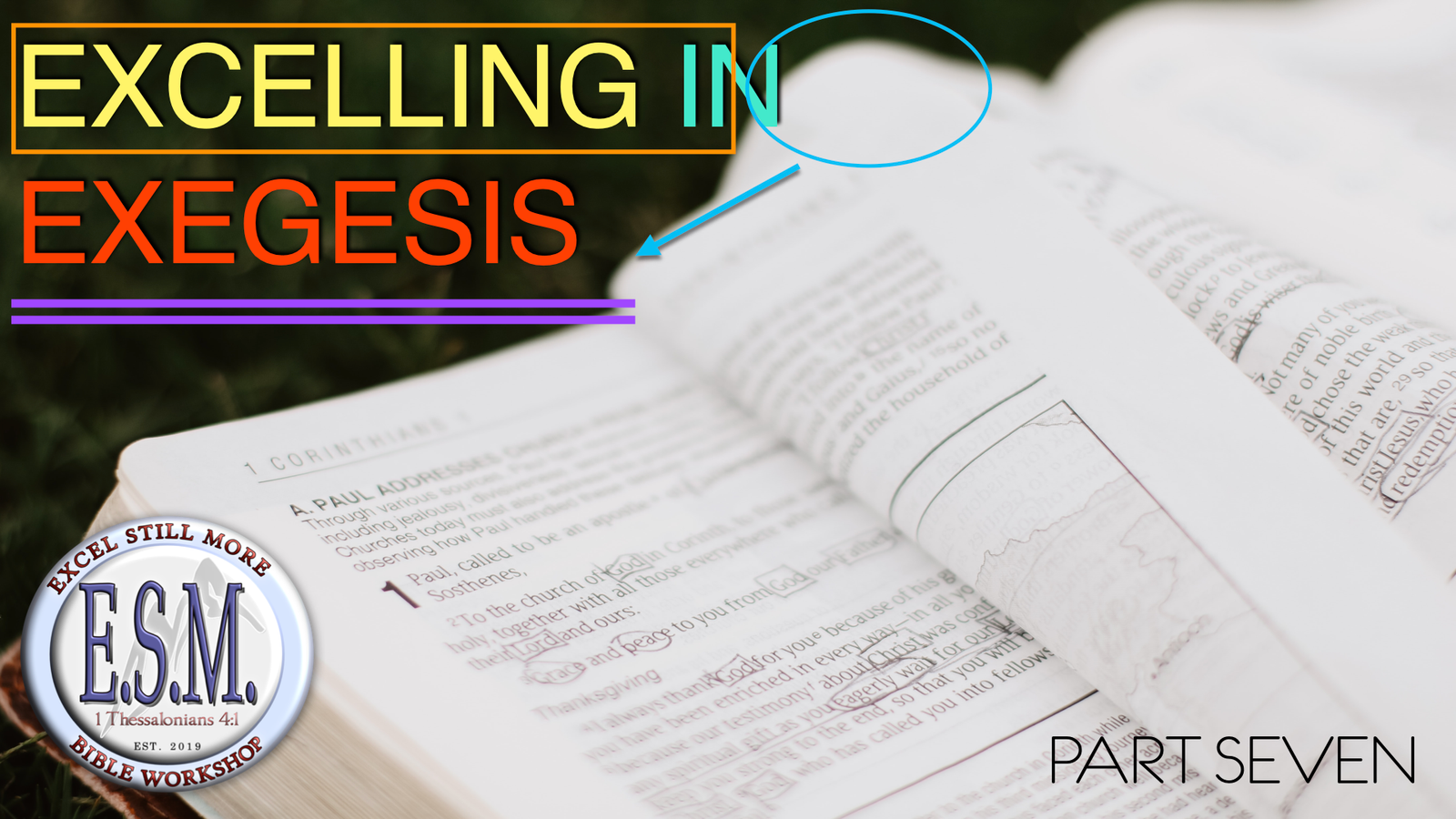The Bible is a massive book! Ever thought that (or heard someone else say it)? It is true that the Bible can be intimidating because of its size. Equally, some books individual books are daunting as well (think Leviticus!). Knowing how to dig into such books (and the small ones, too) is much easier when we have a simple approach.
The Four P’s. #1: Prevalence (continued)
In our last article, we addressed some examples of prevalent words and discussed the importance of finding these words. Now, let’s dig a little deeper into this concept. Hopefully, you have accessed our website (www.WeTrainPreachers.com) and found the “Study Resources” section, where keywords are listed for several biblical books. Also, take some time to color-code your Bible (or at least do it in a less expensive $5.00 Bible you can get at the store).
The book of Proverbs is one of those large books, with 31 chapters. Some have argued that the book is impossible to outline and that it has no real structure. Those who make such statements have not considered this step in the exegetical process. Proverbs have numerous prevalent words. Here are those that occur 60 times or more):
-
“Wise” (ḥākām – occurs 102 times)
-
“Heart” (lev – occurs 97 times)
-
“Righteous/righteousness” (tsadiq – occurs 94 times)
-
“Man” (ish – occurs 94 times)
-
“LORD” (יהוִה – occurs 88 times)
-
“Wicked” (rasha – occurs 87 times)
-
“Way/path” (darak – occurs 76 times)
-
“Evil” (rah – occurs 75 times)
-
“Know/knowledge” (yadah – occurs 72 times)
-
“Discernment/understanding” (bin – occurs 71 times)
-
“Good” (tov – occurs 63 times)
Look over this list of words. If you thought about them for a minute, you would probably see some general ideas. For example, the LORD is at the center of this discussion. There are basically two ways/paths. There is the path of wickedness and evil, and there is the path of righteousness and good. This is a challenge for every person (man). The challenge falls upon us all to use our hearts (the Hebrew mind) to accumulate wisdom and knowledge. Once we do, we will have an attribute that Solomon considers essential: discernment/understanding.
Consider those words in one section (I’ve bolded the keywords) found in 2:6-12…
6 For the Lord gives wisdom; From His mouth come knowledge and understanding.
7 He stores up sound wisdom for the upright; He is a shield to those who walk in integrity, 8 Guarding the paths of justice, And He preserves the way of His godly ones. 9 Then you will discern righteousness and justice And equity and every good course. 10 For wisdom will enter your heart And knowledge will be pleasant to your soul; 11 Discretion will guard you, Understanding will watch over you, 12 To deliver you from the way of evil, From the man who speaks perverse things; (NAS95)
The only keyword not found in this section (also called a pericope) is the word wicked (you’ll see it in verse 22, though). Notice how identifying these keywords helps us see a number of significant truths and creates some fascinating questions:
-
There are two ways – and that’s it. There isn’t a third option. Therefore, we will be on the way (path) of “justice,” a path shared with “His godly ones.” Now, I usually would want to dig into those words a little bit more (but that will happen later).
-
The LORD is active in providing us with both the wisdom and knowledge that we’re going to need, and we’ll understand what He wants us to do. Note: Just making this point creates all sorts of incentives for further study (i.e., What is the difference between wisdom and knowledge? How is understanding different than those other two words? How does the LORD “give” us this information?
-
What is meant by a good course?
-
What is meant by saying that “wisdom will enter your heart”?
Here is a quick exercise. There is an impressive list that identifies the benefits of the wisdom the Lord provides. It begins with the word “then” in v. 9. Finding lists will be something we’ll talk about in future articles, but I couldn’t resist encouraging you to find this list (hint: if you came up with ten benefits, you got them all!).
Denny Petrillo
Denny is married to the former Kathy Roberts. They have been married since January 1978. They have three children (Lance, Brett, and Laura) and Six grandchildren (Chloe, Ashlyn, Sophie, Easton, Brelyn, and Kyson). He has served as the President of the Bear Valley Bible Institute since 2004 and has been a full-time instructor since 1985. He has preached in Mississippi, Arkansas, Nebraska, and Colorado. He has taught numerous classes for the World Video Bible School and has authored several books and commentaries. He graduated from the Bear Valley School of Preaching (now the Bear Valley Bible Institute), received an AA degree in Bible (York College, York, Nebraska), BA in Bible and Biblical Languages (Harding University), and an MA in Old and New Testaments (Harding Graduate School of Religion), and a Ph.D. in Religious Education (University of Nebraska).






